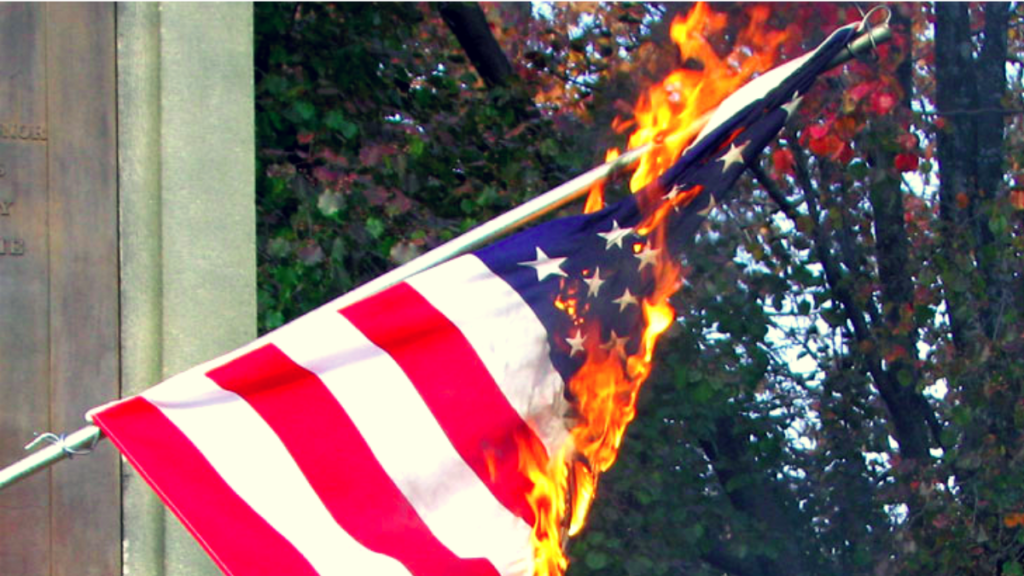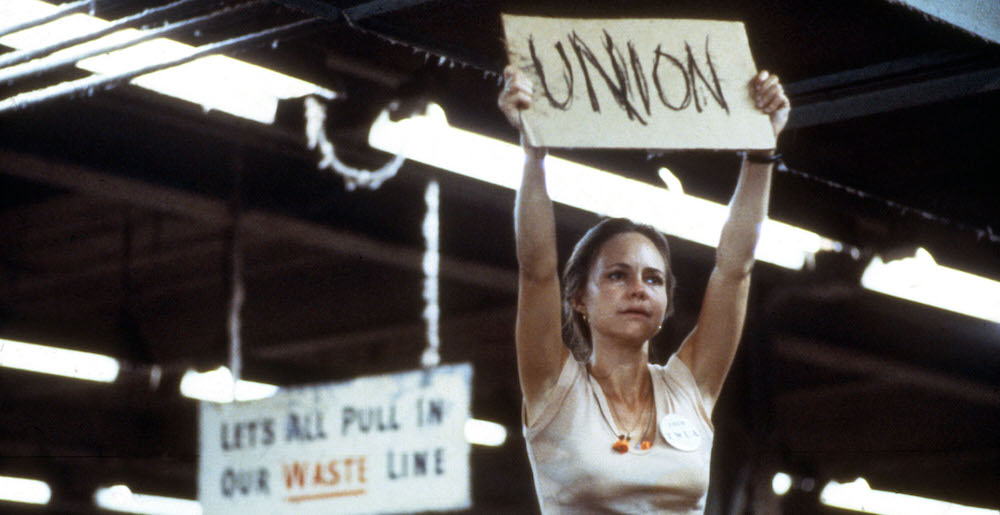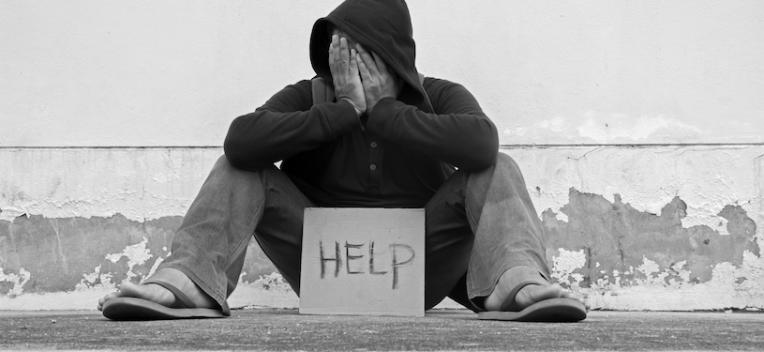In previous years, Independence Day was second only to Halloween as my favorite holiday. You’d show up to a park or a porch in your T-shirt and shorts, catch up with old pals casually overseeing a barbeque thronged with succulent chicken breasts slathered with promising sauce and glistening corn cobs that matched the searing hues of sunshine, and toss back a few beers while giddily tossing ground bloom flowers into the streets with a free-wheeling anarchy that was almost an instinctive homage to our founding firebrands. You’d set aside any stark political differences with casual unifying banter, knowing instinctively that the true quality bonding this nation was the invitational and subdued empathy of the American people. Very often you’d end up making out with a stranger, finding yourself in an unexpected summer romance and experiencing fireworks on the ground level that matched the bright showers exploding in the sky. The Fourth of July was the perfect midpoint to both summer and the year, allowing all to take stock in what had been accomplished and what was still possible. It was never an overtly jingoistic holiday — at least not for me or the people who I gathered with.
But I can’t find it within my moral core to party this year. Not while Trump blows $92 million on a fascist spectacle that is more befitting of a dictatorship rather than a democratic republic. This shameful and hopelessly corrupt administration would rather waste precious resources on empty jingoism, money that has been diverted from our cash-strapped national parks, that should be allocated to swiftly rectifying the traumatic conditions in concentration camps, perhaps addressing the lack of water and the indignity and the cramped space currently endured by the people who are needlessly criminalized there, much less punishing the cruelty of CBP animals who mock the deaths of undocumented immigrants when they’re not busy engaging in unacceptable racist rhetoric.
This is the kind of evil and unfathomable domestic policy that should cause anyone possessing even the tiniest sliver of a human heart to set aside their tongs and their big bags of fireworks to march loudly in the goddamned streets, vociferously denouncing the barbarism that our nation now practices without true representative resistance. But much like the epidemics of racism and gun massacres, we’ve grown accustomed to the comfort of looking the other way. We’re so seduced by the easy and enchanting susurrus of normalization, of pushing clear human abuses out of sight and out of mind to munch on our hamburgers, that the present administration only needs to keep ratcheting up the ghastly bar, counting on the fact that most Americans simply don’t or won’t give a shit.
In Ursula K. Le Guin’s “The Ones Who Walk Away from Omelas,” she depicted a thriving city called Omelas united by a Festival of Summer. The citizens were blissfully happy, but there was one small cost for this revelry:
In a basement under the one of the beautiful public buildings of Omelas, or perhaps in the cellar of one of its spacious private homes, there is a room. It has one locked door, and no window. A little light seeps in dustily between cracks in the boards, secondhand from a cobwebbed window somewhere across the cellar. In one corner of the little room a couple of mops, with stiff, clotted, foul-smelling heads, stand near a rusty bucket. The floor is dirt, a little damp to the touch, as cellar dirt usually is. The room is about three paces long and two wide: a mere broom closet or disused tool room. In the room a child is sitting. It could be a boy or a girl. It looks about six, but actually is near ten. It is feeble-minded. Perhaps it was born defective, or perhaps it has become imbecile through fear, malnutrition, and neglect. It picks its nose and occasionally fumbles vaguely with its toes or genitals, as it sits hunched in the corner farthest from the bucket and the two mops. It is afraid of the mops. It finds them horrible. It shuts its eyes, but it knows the mops are still standing there; and the door is locked; and nobody will come. The door is always locked; and nobody ever comes, except that sometimes — the child has no understanding of time or interval — sometimes the door rattles terribly and opens, and a person, or several people, are there. One of them may come in and kick the child to make it stand up. The others never come close, but peer in at it with frightened, disgusted eyes. The food bowl and the water jug are hastily filled, the door is locked, the eyes disappear. The people at the door never say anything, but the child, who has not always lived in the tool room, and can remember sunlight and its mother’s voice, sometimes speaks. “I will be good,” it says. “Please let me out. I will be good!” They never answer. The child used to scream for help at night, and cry a good deal, but now it only makes a kind of whining, “eh-haa, eh-haa,” and it speaks less and less often. It is so thin there are no calves for legs; its belly protrudes; it lives on a half-bowl of corn meal and grease a day. It is naked. Its buttocks and thighs are a mass of festered sores, as it sits in its own excrement continually.
America has become Omelas. The eerie parallels between the horrific conditions that Le Guin imagined and the realities that the children now suffering in the concentration camps are too nightmarishly exact. I remember this story being taught in high school and college. And there wasn’t a single student I recall who would attend the Festival of Summer knowing that this child existed. Today, I doubt very highly that any of these grown adults would say no to a festive holiday. How little we learn from the fiction that is meant to imbue us with empathy and compassion. But at least I can do my part by resisting a contradiction that should never have become fact in the first place.
It is clear that what now passes for the United States of America is a travesty of meanness and gleeful shame inflicted on the wanting and the impoverished, a sick cartoonish sideshow writ large into a heartless spectacle tacitly endorsed by both bloodthirsty Republicans who refuse to remonstrate against these inhumane conditions and the spineless Democratic arm led by the tepid and ineffectual Nancy Pelosi. While true progressives like Alexandria Ocasio-Cortez and Elizabeth Warren have been out in the field trying to get more information, genuinely caring about the plight of those who suffer, our disgraceful Speaker snoozes and roosts like a smug barnacle patiently awaiting her soy milk latte as people in need desperately approach her for drastic change. In a lengthy report from William T. Vollmann recently published in Harper’s (bless the man for his indefatigable diligence), the prolific writer simply talked to the immigrants, photographing the “black insignia[s] of humiliation” around their ankles and observing the salient and very human reasons why these innocents would wish to flee to America — namely, to escape violence and mayhem. (A detailed study by The Marshall Project earlier this year showed no impact on local crime from immigrants. Numerous other studies reveal inflated numbers from ICE and observe that undocumented immigrants are less likely to commit crime than the average American citizen.)
Like it or not, the immigrants who are mistreated and debased in the concentration camps are Americans. They have lives here and they are deserving, like any human being on this planet, of nobelesse oblige. So long as Americans are starved and denied sleep and bedecked with life-scarring trauma by callous ICE stooges who would sacrifice empathy for the glee of seeing them dead, I refuse to participate in a holiday that now represents a country united by blissful and complicit ignorance. Instead, I will spend the day reciting the Declaration of Independence to remind myself of just what this nation used to be, burning an American flag (a legal act of expressive resistance we thankfully still have) to protest our collective culpability, and thinking about how I can spend my time fighting the bastards with everything I have. These seem to me the only true duties of a principled patriot. I hope that you can find it within your heart to do something similar.


